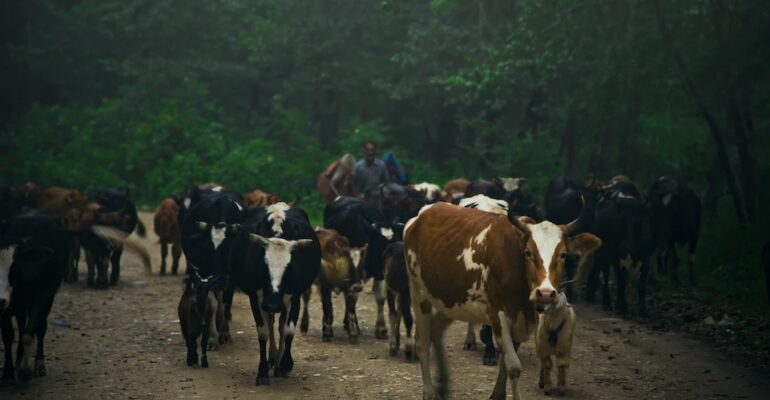In Nigeria, the herdsmen-farmers conflict seems to be spiralling out of control and taking on a more profound dimension. The issue might worsen without a robust policy framework and the government’s determination. The conflict hotspots are concentrated in the North-Central, affecting states like Benue, Nasarawa and Plateau. Other states affected include Adamawa and Taraba in the North-East, Ogun and Oyo in the South-West, Ondo in the South-South, and Enugu and Imo in the South-East. The tension is still spreading to other regions. In Plateau, for instance, the renewed impasse between Berom Farmers and Fulani Herders in Barkin Ladi and Riyom villages has seen some deadliest clashes, especially during farming and grazing seasons.
IMPLICATIONS OF THE CONFLICTS
Between January 2016 and October 2018, the conflict claimed the lives of at least 3,641 people. Thousands of farmers were forced to abandon their farmlands to stay alive. Besides the herders-farmers disputes, the country faces other security challenges: The Boko Haram insurgency in the Northeast and the scourge of banditry in the Northwest. In November 2020, the Boko Haram insurgents reportedly slaughtered at least 43 rice farmers. These occurrences do not bode well for the nation’s efforts to eradicate poverty, hunger, malnutrition, and food insecurity.
Government’s efforts in the mitigation
The Nigerian government has tried to contain the threat posed by these clashes between herders and farmers. Several of the interventions include the RUGA project introduced in January 2019, aimed at revitalising grazing reserves under the National Livestock Transformation Plan. Still, the idea was widely criticised as a land-grabbing attempt. Many critics of the RUGA proposed that since cattle rearing is a private business, the pastoralists should acquire their lands and set up a ranching system. These projects have yielded low results as many communities have rejected their implementation.
MOVING THE CONFLICTS FROM ZERO-SUM TO WIN-WIN
Considering the preceding, developing strategies that permanently restore normalcy cannot be overemphasized. Specialists have proposed the following interventions with years of experience working with farmers and ranchers as potential parts of what would need to be a multi-pronged approach:
- Promoting climate-smart agriculture
Promoting a sustainable nutrient cycle whereby herders supply animal manure to farmers for crop residues can help soil nutrient restoration. One of the critical drivers of these conflicts is climate change and soil degradation. There are nineteen (19) northern states, and seven (7) are severely affected by desertification, while eight (8) are moderately affected.
- Feed preservation and storage
Seasonal feed source dependence would be significantly reduced if herders were taught how to save local feed using silage and hay. It would lessen the need for seasonal migration even further.
- The use of animal trackers.
There are different types of animal trackers that herders can use for effective monitoring of their animals during grazing. Since farmers are complaining about animals grazing on their crops, with these trackers, herders can prevent their animals from eating farmers’ crops.
- Development of a database for cattle owners in Nigeria.
The government should develop a database containing the biometrics of farmers and cattle owners in Nigeria. Farmers and herders should have a unique identification number for proper referencing and data-driven policies.
CONCLUSION
In conclusion, Nigeria’s government and all stakeholders in the peace process need to remain consistent in policy formulation, and implementation for a saner society where the farmers and herded live harmoniously while pursuing their legitimate businesses.

